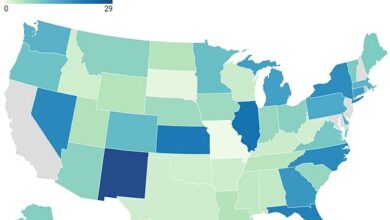The Motherhood Penalty! Lack of financial support, childcare costs and the housing crisis are causing women to have fewer children, research suggests



Women are being deterred from having children because of a ‘motherhood penalty’ at work, a study has found.
Although figures show that only 1.49 children will be born per woman in 2022, research shows that on average women want two or three.
The research, conducted by think tank Onward, found that families could not afford to have more children due to factors including a lack of financial support for new mothers and high childcare costs.
Onward called on the government to double the amount of statutory maternity leave new mothers receive, and give fathers greater access to paternity leave. The Times report said evidence showed that becoming a mother was associated with lower monthly earnings and lower savings in later life.
While data shows that women between the ages of 18 and 21 earn 0.2 percent more than their male peers, between the ages of 40 and 49 they earn 10 percent less. On average, women have £69,000 in pension savings at 67, compared to £205,000 for men.

Women are having fewer children due to a ‘motherhood penalty’ at work, and a lack of financial support and childcare costs (archive photo)
Onward called on the government to follow the example of countries such as Sweden, where maternity and paternity benefits are higher and the birth rate is higher.
Phoebe Arslanagic-Little from Onward told The Times: ‘Many people delay having children or can’t have as many as they would like because they feel they can’t afford the price of parenthood.
‘But instead of paving the way for parents and parents-to-be, our tax, benefits and employment rights systems are failing them: children are our future.
“New mothers and fathers need more security and financial stability so they can build the family they want.”
Figures for England and Wales show a record low number of children being born each year. The last time enough children were born to prevent population decline was in the 1970s.

Justine Roberts, founder of Mumsnet, said the report exposed the challenges faced by millions of parents
The report found that when the Bank of England cut interest rates during the 2008 financial crisis, birth rates rose.
An estimated 14,500 extra babies were born in 2009, pushing the UK birth rate up by 7.5 per cent over the next three years.
The research was supported by advice forum Mumsnet, whose founder Justine Roberts said the report highlighted the challenges faced by millions of parents.
She said: ‘This report is an important contribution to the discussion about how we can tackle the financial barriers to parenthood. It reflects much of what we hear from our nine million users, particularly around low statutory maternity and paternity pay and the importance of tackling the workplace maternity penalty.’




